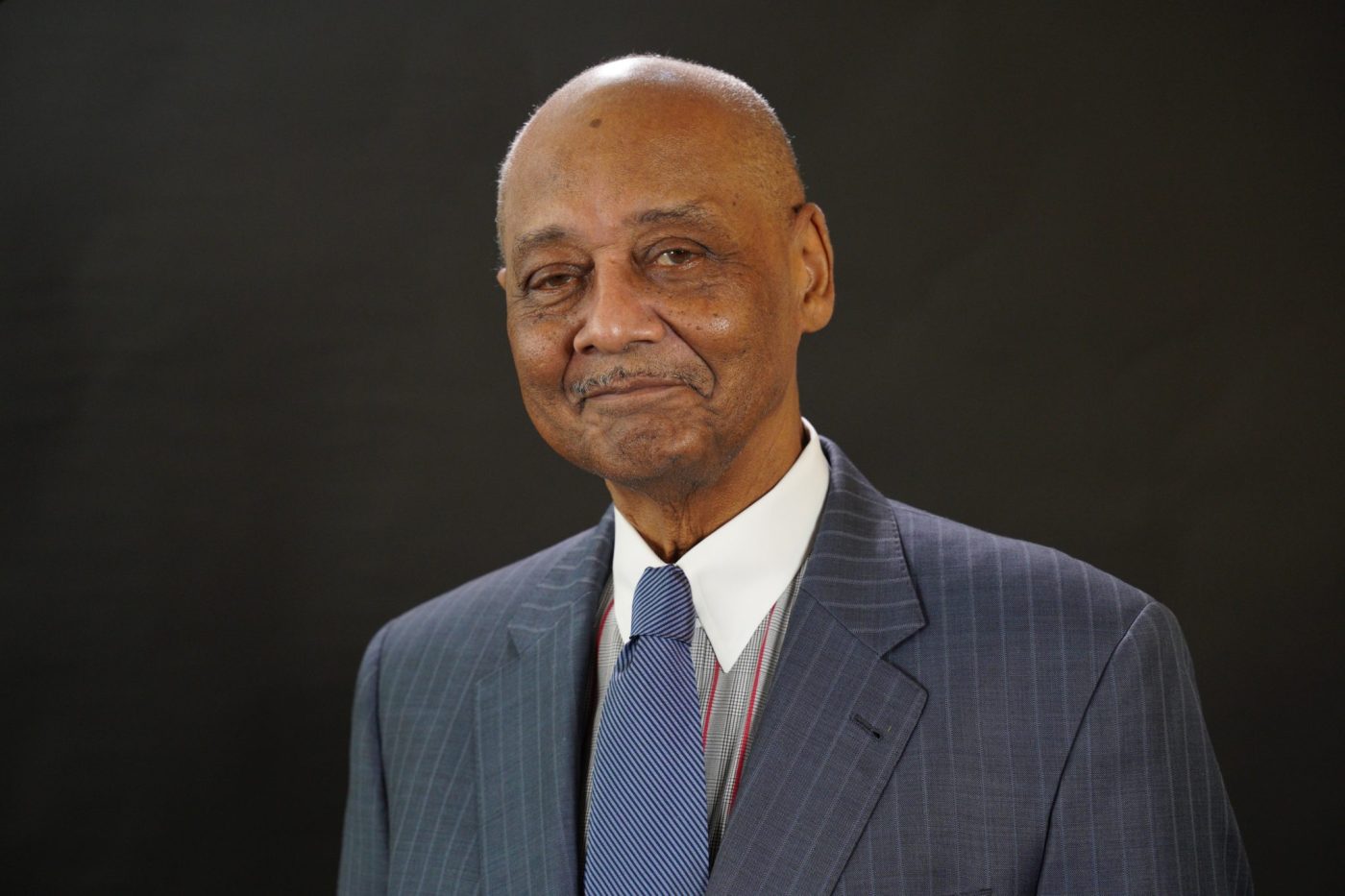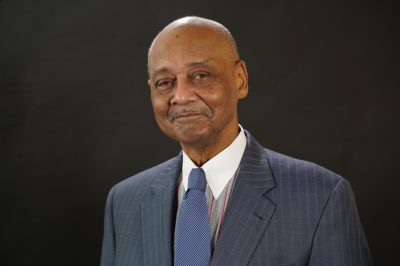Robert “Bob” Woodson has a long history of clashing with civil rights activists. In fact, he recalled during a recent interview with The Dispatch, his disputes with the civil rights movement began when he was still part of it.
“The people on the picket line were janitors, hairdressers—they’re just ordinary black folks,” Woodson said of a late-1960s protest in West Chester, Pennsylvania, outside a pharmaceutical company.
After pressure, the company hired nine black chemists. But “when we asked them to join this movement, they said they got these jobs because they were qualified—not because of the sacrifices of those out there who were picketing.” Woodson came to believe that the civil rights movement was resulting in “promoting the interests of middle-class, well educated” black Americans “even if it meant it was coming at the expense of low-income blacks.”
Blunt rhetoric like that has earned the soon-to-be retired 85-year-old plenty of criticism. But his lifetime focus on empowering low-income black communities has garnered grassroots support from those communities, helping to make him one of the most recognized black conservatives today.
Early in his life Woodson, a Philadelphia native, encountered the discrimination and poverty he’s committed decades to fighting. His father, who had served in the National Guard’s Harlem Hellfighters unit during World War I, died when Woodson was only 9. The loss left a paternal void for Woodson, whose mother struggled to raise five children on her own. At 17 he dropped out of high school and enlisted in the Air Force. After basic training he headed to Biloxi, Mississippi.
The all-encompassing racism embedded in the Deep South was a shock to his system: Once a cab driver refused to take him and a white friend to town together. Appearing anywhere with a white person in public was dangerous, and Woodson eventually spent all his time with other black men on base. They thought up ways to help each other evade trouble: “We had to help each other confront the reality of segregation in the South.”
After his service ended in 1958, Woodson joined other civil rights protesters in demonstrations against segregation, even getting jailed in the 1960s. But then came the West Chester protest—and eventually the split.
His work from there was a mix of scholarship and street-level organizing. While earning a bachelor’s degree in math from a historically black college in Pennsylvania, he worked a stint in a juvenile detention facility helping young men. That led to a master’s degree in social work from the University of Pennsylvania. He served as the director of the National Urban League’s Administration of Justice division in the 1970s, then as a resident fellow at the conservative American Enterprise Institute. But Woodson wanted to do more. “I’m disappointed that the people that I care most about—those who are on low income, struggling—are living in communities where there is disorder, decay, and decline,” he said.
In 1981, he left the think tank world to found his own organization, the National Center for Neighborhood Enterprise, later renamed in his honor.
The Woodson Center’s goal is to rejuvenate the black community in impoverished neighborhoods. The underlying assumption of the organization’s work is that solutions come from the communities themselves. When the Woodson Center partners with a neighborhood, it looks for natural community leaders, ministers, faith-based organizations, and nonprofits already there, then provides resources to tackle poverty, crime, addiction, homelessness, and lack of familial networks. It also focuses on reducing violence by providing mentorship and other development strategies for at-risk youth.
Woodson gained street cred by diving right in: After the abduction and murder of a 12-year-old boy in 1997, a result of feuding gangs in a public housing project in southeast Washington, D.C., he worked with the Alliance of Concerned Men to broker a truce in meetings at the Woodson Center’s office. Violence in the development declined.
In Washington in the 1980s the Woodson Center also partnered with a neighborhood leader to design a tenant-management program that empowered residents of the troubled public housing development Kenilworth-Parkside. Kimi Gray, a resident and single mother of five, imposed strict rules that convinced drug dealers to leave, and she established a mentoring program encouraging kids to prioritize their education, according to Woodson. The development also employed residents, helping people get off welfare.
Over 15 years the development saw a decline in crime, vacancies, and residents on welfare. Some 600 kids from the development, including Gray’s five, would go to college. “It became a model for the nation about how poverty can be alleviated by supporting indigenous leaders,” Woodson said.
Others saw the potential in the activist’s “islands of excellence.” The tenant management approach won the endorsements of other prominent conservatives—including Housing and Urban Development Secretary Jack Kemp of the George H.W. Bush administration.
“We’re looking to the wrong places for the right answers to poverty,” Woodson said. “We cannot find them by parachuting in programs and policies from outside. We’ve got to come inside and first look for solutions that are being generated by the people suffering the problem.”
Woodson believes his approach resonates when he speaks directly to black audiences. Over the years he has done so in public debates, clashing with other civil rights leaders over busing, school choice, how black history is taught, and the effects of racism.
He recalls debating two other commentators on television. “They said, ‘Well, let's open up the phone lines to see what the average black person thinks about what you're saying.’ It was seven to one, the calls that came into that station supported what I was saying,” Woodson said. He added, “I never got invited back.”
Detractors note that the Woodson Center, despite its philosophy of self-help and private intervention, has partnered with the government and obtained federal funds. Others argue that residents in tenement-management developments are still stuck in poverty, even if their living situations have improved some.
And the Woodson Center’s recent 1776 project—which styles itself as a counter to New York Times Magazine journalist Nikole Hannah-Jones’ 1619 Project—has led to sparring between Woodson and Jones.
Not that Woodson doesn’t also have criticism for Republicans: “They have just written off poor people, written off black folks. And that’s still a problem today.” Poverty in Democrat and Republican-controlled cities, Woodson said, looks the same.
It would be easy for Woodson to consider his career a success. He has written several books, won prestigious awards, and made real changes in countless lives. Yet as he prepares to retire from the Woodson Center—his successor is yet to be announced—Woodson thinks in different terms.
“I have no right to demand success,” he reflected. “But I have a responsibility to be faithful and continue doing what I'm doing—come up with new ways of helping people to help themselves and then present these new ways of helping people to help themselves. So that somebody smarter than me, who has more energy can come along and take what I have planted and harvest it in such a way that I never would have imagined.”





Please note that we at The Dispatch hold ourselves, our work, and our commenters to a higher standard than other places on the internet. We welcome comments that foster genuine debate or discussion—including comments critical of us or our work—but responses that include ad hominem attacks on fellow Dispatch members or are intended to stoke fear and anger may be moderated.
With your membership, you only have the ability to comment on The Morning Dispatch articles. Consider upgrading to join the conversation everywhere.